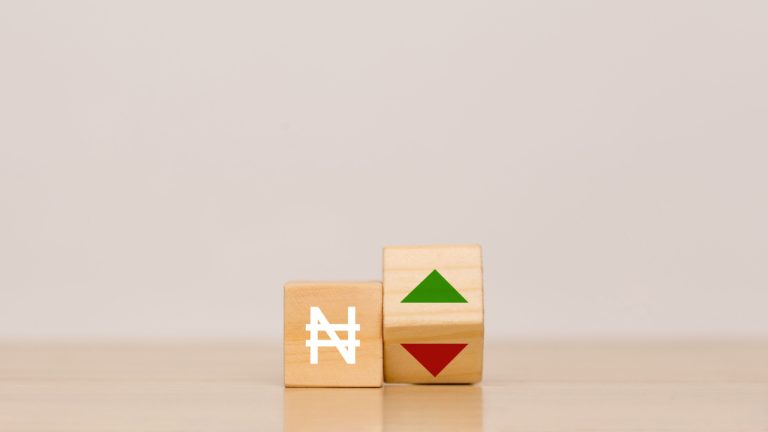Nigerian Currency Redesign Controversy: Naira Slips by Almost 20%, Experts See Exchange Rate Reaching 1,000:1 USD Before Year End

The Nigerian currency appeared to accelerate its decline versus the U.S. dollar after it slipped to a new low of 900 naira for every dollar. The currency has continued to depreciate even after the Economic and Financial Crimes Commission’s raid on suspected illegal foreign exchange dealers.
Continuing U.S. Dollar Shortages
Following the Oct. 27 announcement by the Central Bank of Nigeria (CBN) that intends to put into circulation newly designed naira banknotes, the local currency’s parallel market exchange rate versus the dollar has slipped by almost 20%. From an exchange rate of around N760:$1 at the time of the announcement, the naira had, by Nov. 2, dropped to a new all-time low of 900:1.
As noted by several local media reports, the CBN’s decision to release the new banknotes as well as to demonetize the current 100, 200, 500, and 1,000-naira banknotes after Jan. 31, 2023, has sparked a rush to buy the greenback. According to one report, the shortage of the U.S. dollar on both the official market as well the parallel market has increased pressure on the naira.
Despite receiving the backing of President Muhammadu Buhari, the CBN’s currency redesign plans have seemingly failed to halt the naira’s slide.
One Nigerian economic expert, Andrews Elueni, the managing director at Flawless Capital Limited, was recently quoted suggesting that the naira’s exchange will slip past the N1,000:$1 mark before the end of 2022.
“It will get to N1,000 before the end of the year, the reason being that there is a lot of fraud and corruption in the system,” Elueni reportedly said.
Official and Parallel Market Gap Widens to 450
Despite the naira’s accelerated slide versus the dollar on the parallel market, Nigerian monetary authorities continue to keep the naira pegged at just under 450 per dollar.
Meanwhile, following the CBN announcement, Nigeria’s anti-graft body, the Economic and Financial Crimes Commission (EFCC) warned the public it would pounce on suspected illegal currency dealers. Since then, local media reports suggest the EFCC has raided bureaux de change operators who stand accused of fueling illegal foreign exchange activities.
According to one report, when the EFCC pounced, the naira’s parallel market exchange rate stood at 840:1. However, more than 24 hours later, the gap between the currency’s parallel and official market exchange rates had widened to a new high of N450.
Register your email here to get a weekly update on African news sent to your inbox:
What are your thoughts on this story? Let us know what you think in the comments section below.



